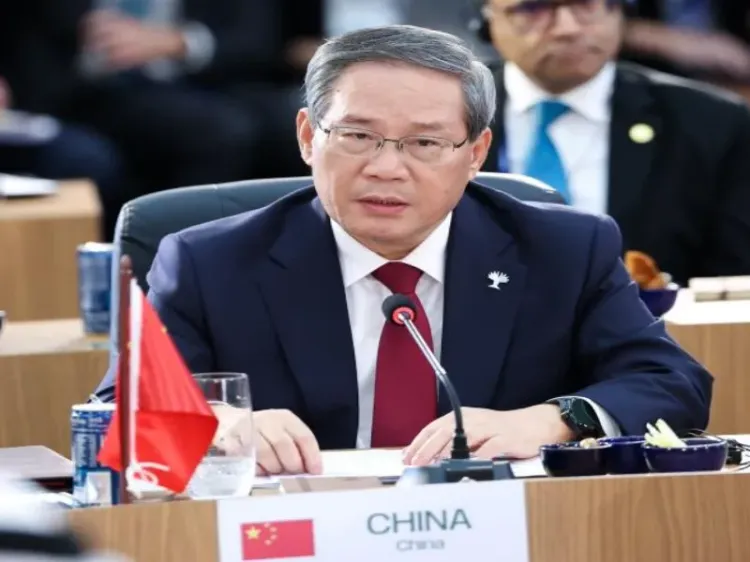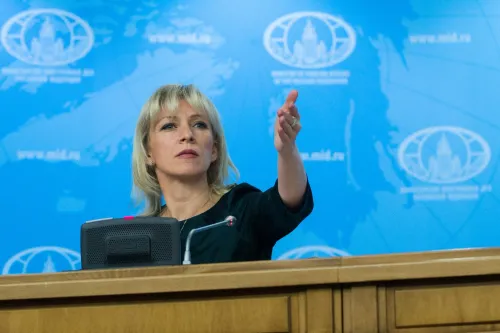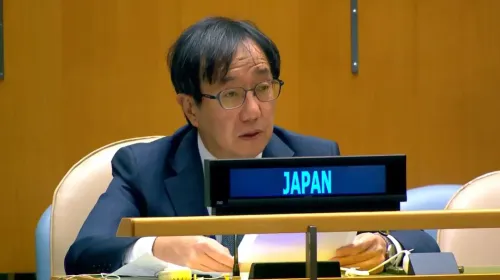How Can BRICS Nations Lead in Global Governance Reform?

Synopsis
Key Takeaways
- BRICS nations must lead in global governance reform.
- Focus on peaceful resolutions and development cooperation.
- Importance of inclusivity and mutual respect in dialogues.
- China to establish a research center and scholarship for BRICS.
- BRICS can enhance global governance through unity.
Rio de Janeiro, July 7 (NationPress) During the 17th BRICS Summit, Chinese Premier Li Qiang emphasized that BRICS nations must become the leading force in promoting the reform of global governance. Addressing the plenary session on "Peace and Security and Reform of Global Governance", he urged the bloc to protect global peace and advocate for peaceful resolutions to conflicts.
Leaders from BRICS nations, chaired by Brazilian President Luiz Inacio Lula da Silva, gathered to discuss pressing global issues. Li pointed out that unprecedented changes are rapidly reshaping the world, with international norms and order facing significant challenges, leading to diminishing authority and effectiveness of multilateral organizations, as reported by Xinhua.
Li highlighted the vision for global governance presented by Chinese President Xi Jinping, which promotes extensive dialogue, collective contributions, and shared benefits, showcasing its relevance and practical importance today.
In the face of escalating conflicts and differences, Li stressed the necessity for inclusive dialogues based on mutual respect and equality. He urged nations to collaborate closely to foster joint contributions, emphasizing the importance of maintaining an open mindset to pursue shared success amid interlinked interests.
As pivotal representatives of the Global South, BRICS countries should embody independence and self-sufficiency, assume greater responsibility, and play a crucial role in building consensus and synergies, noted Li.
He called for adherence to principles of justice and morality, seeking solutions rooted in the specifics of each challenge.
Li also underscored the importance of focusing on development to enhance economic growth drivers, advocating for robust development cooperation and exploring potential in emerging sectors, as per Xinhua.
This year, China plans to establish a China-BRICS research center dedicated to new quality productive forces and announced a scholarship initiative aimed at nurturing talent in sectors such as industry and telecommunications for BRICS nations.
Promoting inclusivity and fostering exchanges among civilizations is crucial, according to Li, who urged BRICS countries to champion harmonious coexistence among diverse cultures, ensuring they thrive together through mutual support.
Li reiterated China's readiness to collaborate with other BRICS nations to drive global governance towards a more just, equitable, efficient, and orderly path, collectively striving to create a better world.
Leaders at the summit recognized that the BRICS cooperation mechanism has gained strength and representation, with its global influence steadily increasing.
This platform has been vital for Global South nations to assert their right to development, advocate for international fairness, and engage in reforming the global governance framework.
In a world marked by rising unilateralism and protectionism, BRICS countries are encouraged to foster unity and coordination, uphold the principles of the UN Charter, support and practice multilateralism, thus contributing substantially to common development, improving global governance, and fostering lasting peace and prosperity.










